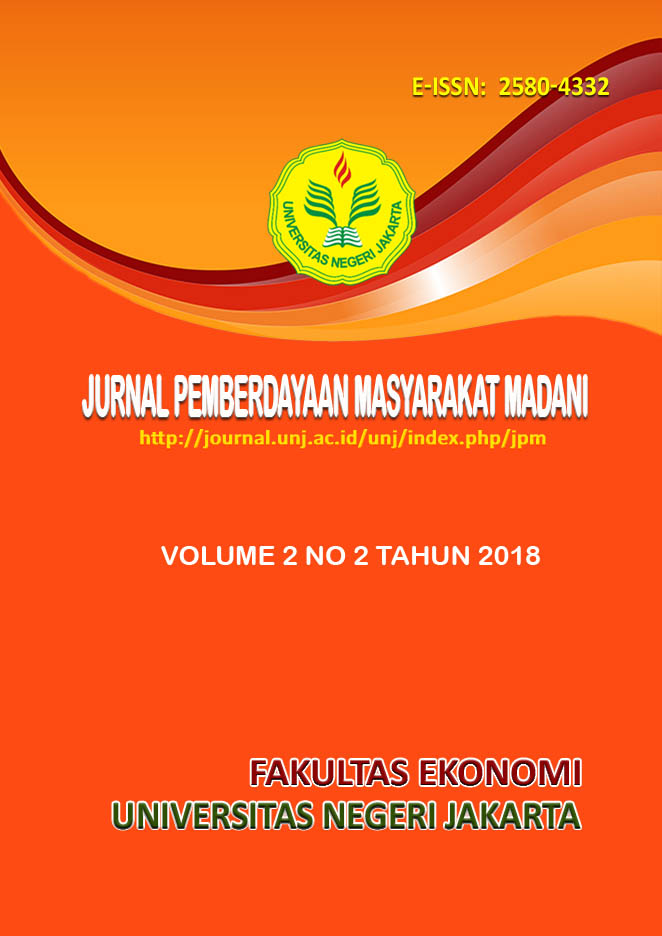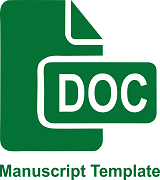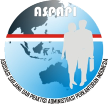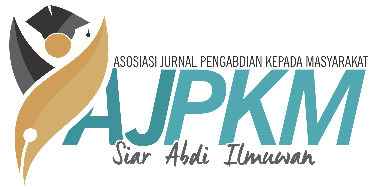Revitalisasi Koperasi Syariah Berbasis Pemberdayaan Lingkungan Melalui Optimalisasi Bank Sampah
DOI:
https://doi.org/10.21009/JPMM.002.2.09Keywords:
Society Empowerment, Islamic Microfinance Institution, Household Finance Management, Litter BankAbstract
The amount of litter production at DKI Jakarta show a rapid climb up to 6.000 ton per days. DKI Jakarta governor asks their staff to tackle this problem to reduce the litter production since at household activity. Based on this case, Litter Bank is one good solution to plunge the amount of litter at sanitary landfills and be an innovative product which assists people to get household income. As a concern, this empowerment was held at the densely populated area with multitude household such as District of Cililitan by creating Islamic Microfinance Institution to improve litter bank performance. Based on economic aspect, the majority of social work as a labor and small enterprise who have middle until low range income. The purpose of this empowerment is divided for some aspects which are an environmental aspect, education, and social economics, for instance, an innovative product and adoption from rente system which are book saving and recycling rubbish which has a high value on the market. The method used in this empowerment is a qualitative case study approach. The data used are primary data obtained through observation and workshop to the communities on Cililitan. The empowerment was conducted during the period September 2016 – March 2017. The result depicts that Islamic Microfinance Institution scheme entered and accepted by the community through a process of active and passive processes. Furthermore, it can grow society awareness in recycling rubbish and household finance management.
Downloads
Published
How to Cite
Issue
Section
License

This work is licensed under a Creative Commons Attribution-NonCommercial-ShareAlike 4.0 International License.
















